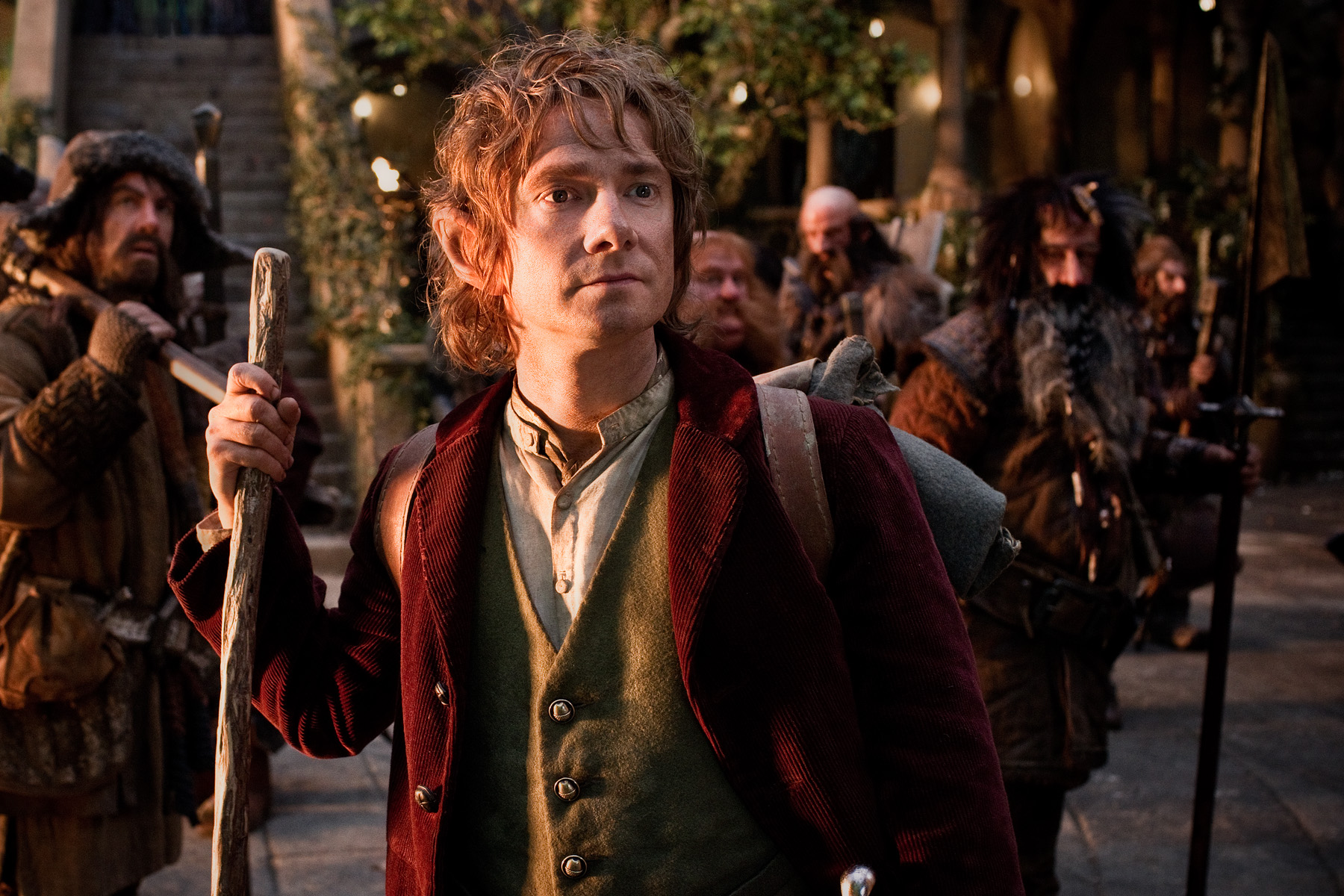 |
| Martin Freeman as Bilbo Baggins |
To put it simply, it feels like coming home.
The minute The Hobbit:
An Unexpected Journey starts, a comfortable feeling settles as you find
yourself back in the rolling hills of The Shire, greeting old faces from Peter
Jackson’s beloved films released only nine years ago.
Right away there is a proper blend of old and new, from the
familiarity of sets like The Shire and Rivendell to the new Dwarven kingdom of
Erebor, where we meet a few new faces.
14 new faces to be exact. While several familiar faces return — including Ian McKellen,
Cate Blanchett, Hugo Weaving, Andy Serkis, Ian Holm (old Bilbo) and Elijah Wood
— most screen time is taken by a a much
younger Bilbo Baggins (Martin Freeman) and a company of rough-and-tumble dwarves led by Thorin Oakenshield (Richard Armitage), and to be honest, I couldn't get enough of them.
Martin Freeman as Bilbo is a perfect choice. Previously playing Dr. Watson on BBC's show Sherlock, Freeman gives his characters deeply relatable qualities and an awkward likability. Bilbo in a way, represents us. We love our comfort, our home, our food, and we like life to be predictable. Before Bilbo meets the dwarves and is thrown into their quest to reclaim their homeland, Bilbo wanted nothing unexpected. But he has another side, as do we; a side that has the ability to become a hero in ordinary, everyday choices and events. Freeman perfectly portrayed the simple, everyday man making small but important choices that aided his friends.
 |
| Richard Armitage as Thorin Oakenshield |
Richard Armitage (aka the "New Aragorn") is a new crowd favorite. Although a surprisingly unknown actor, Armitage brings immense depth and battle-scarred bravado to a character that has lost his homeland and will stop at nothing to reclaim it.
The story of The Hobbit takes place 60 years before Frodo’s quest to
destroy the One Ring; Middle-Earth is a simpler, lighter place and the
overwhelming sense of doom and gloom in Lord of the Rings is a shadow in slight beginnings. The story is told as a flashback by the old Bilbo to his nephew Frodo, the main hero in Lord of the Rings.
While Tolkein’s book is only around 300 pages, Jackson is stretching the story into three movies to include background history from the
appendices of Lord of the Rings and perhaps parts of The Simarillion.
Needless to say, the film is a bit overlong, but you hardly notice. It's a fast-paced adventure
from start to finish, an "out of the frying pan and into the fire" feeling that fits the book's pace.
While Lord of the Rings had a flawless, classic feel
visually, The Hobbit upgrades its technology, giving it a more animated
feel. Like it or not, it's a fitting tone since it's a
lighter story than Lord of the Rings. And like Lord of the Rings, The Hobbit still has plenty of intensely awesome battle scenes — a kind of OHMYGOSHTHATWASSOCOOL!!! kind of intensely awesome. (Definitely thought that in my head as I watched...don't care).
Overall, The Hobbit is less compelling than Lord of the Rings, but that's mostly because we're dealing with an evil dragon and reclaiming the dwarves' lost land, as opposed to destroying the Ring that will eventually end all of Middle-Earth.
Still, costumes, makeup, props, cinemetography done the way God intended it, a perfect cast and a flawless film score — it's the stuff that made Lord of the Rings so magical, and Jackson's definitely done it again. It's in those little magical moments of the film that it becomes great. As Gandalf puts it, it is “not in great but in the small moments of kindness and love, that keep the darkness at bay.” And I think Tolkein would be proud.
No comments:
Post a Comment